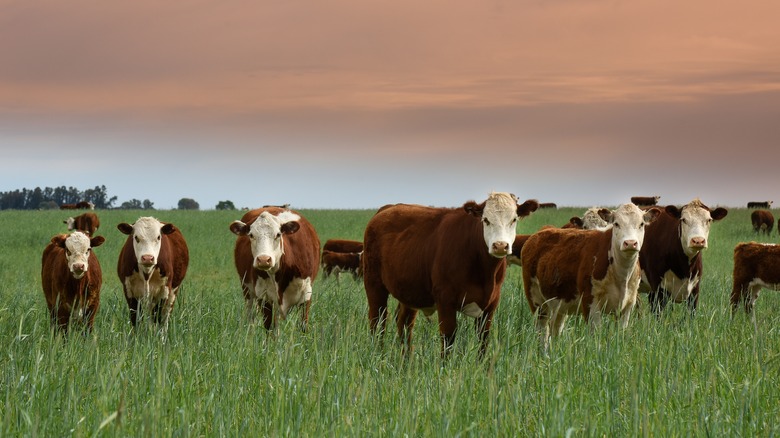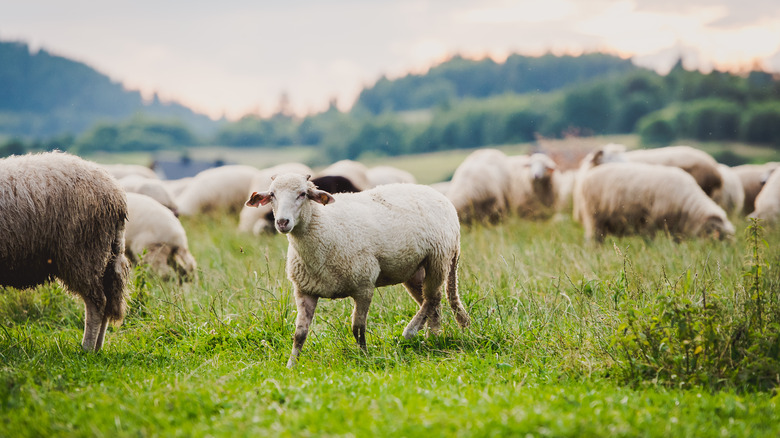Why New Zealand Farmers May Be Taxed For Gassy Livestock
New Zealand's latest plan for curbing greenhouse gas emissions might not be what you'd expect. The island nation plans to go straight to the source by making farmers pay for their livestock's gas emissions, reported Reuters.
Emissions from burping sheep and cows may seem trivial at first glance, but their impact adds up. According to the University of California, Davis, 14.5% of global greenhouse gas emissions can be attributed to livestock alone. According to NPR, cattle are responsible for a whopping 40% of global methane emissions.
In New Zealand, these numbers are even more dramatic. Per Reuters, the nation is home to just 5 million people — compared to 10 million cattle and 26 million sheep. And unfortunately, the country's robust agricultural economy has environmental consequences. According to Ag Matters, the industry is responsible for 48% of the country's greenhouse gas emissions — and of those agricultural-related emissions, 71% come from methane burped out by cattle and sheep.
What will happen if the plan is passed?
According to Reuters, a draft of the proposed plan was released in June. The draft, which was written by government and agricultural representatives, stipulates that by 2025, farmers will be required to pay for the emissions of their livestock. If passed, the plan would make New Zealand the first country to implement this type of system.
"There is no question that we need to cut the amount of methane we are putting into the atmosphere, and an effective emissions pricing system for agriculture will play a key part in how we achieve that," said New Zealand's Climate Change Minister James Shaw, per Reuters.
While carbon dioxide is the most common greenhouse gas, methane is a close second, reported the BBC. However, because methane has more potent warming effects than CO2, its contribution to global gas emissions shouldn't be underestimated: According to the news outlet, one-third of today's human-caused global warming can be attributed to methane.

